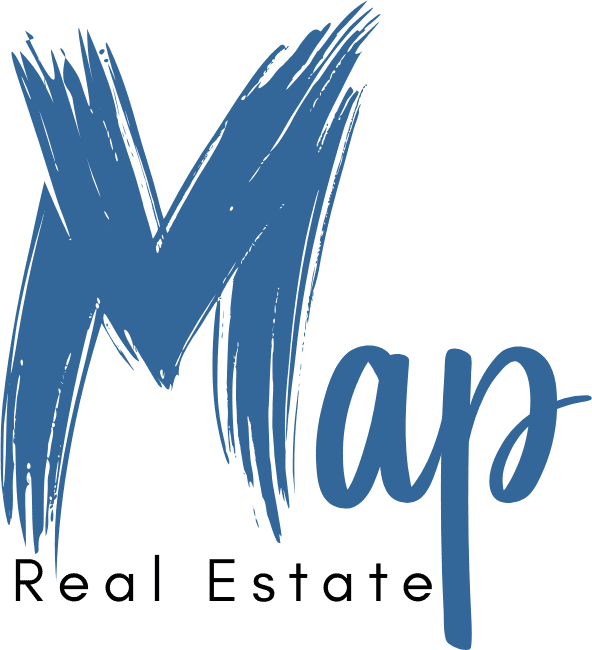
Real estate is a complex and diverse business area, which has been experiencing steady development during recent years. This includes the purchase, sale, leasing and management of properties, development and investment. As the market continually becomes more unpredictable, the need for accurate and efficient decision-making continues to grow which leads to more people and businesses requiring professional assistance regarding real estate. This is where real estate consultants come in.
Real estate consultants are well-experienced persons who have the necessary expertise, knowledge and skills to assist clients in real estate affairs. Many of them are not only advisors but also profound partners who possess a comprehensive understanding of the market, valuation and transactions. Here in this blog, we will discover what they are, what role they play, their core responsibilities, types and how to select the right one. Let’s dive into the sea of the real estate market!
What Is a Real Estate Consultant?
A real estate consultant is someone who advises or gives recommendations mostly to clients on matters concerning property investment, purchase or sale. A real estate consultant’s major policy objective is to ensure that the values of the real estate investments and properties owned by his clients receive, are enhanced or increased through the provision of efficient information.
A real estate consultant is an important profession in this industry. Consultants can offer value to their clients for selecting services or products by offering them extensive information about the market, dynamics of the market and ways in which the market can be successfully navigated. Every client of a consultant knows that sometimes advice is the best protection against miscalculations and wasted money.
What Defines a Real Estate Consultant?
Several characteristics distinguish real estate consultants from other professionals in the sphere. The first core competency is knowledge within the areas it involves such as markets, investment, valuations, and transactions in the real estate industry. It enables them to analyze data critically and to communicate it and the proposed solutions to clients in a very professional manner.
Real estate consultants are in the capacity of advisors. While agents tend to act as the middlemen while soliciting the contract of their employer, the consultant may not be affiliated with any particular party; they are hired to offer impartial advice to their clients. They are not direct participants of the transaction but the main goal is to help the clients to make the right choice for them.
What Does a Real Estate Consultant Do?
The primary functions of a real estate consultant include:
- Invest a substantial amount of time to undertake research in relation to the market characteristics of the contemplated project or the property concerned.
- Valuate properties in order how they are likely to fare in the market and their profitability should investors decide to put their money into a particular property.
- Help organizations with strategies to adopt when it comes to their real estate portfolio.
- Manage issues involving real estate with the acquisition of the property, conducting investigations, preparation of contracts and closing.
The Role of a Real Estate Consultant: Core Responsibilities

Real estate consultants perform several main tasks as they help clients in different phases of real estate investment and purchase. These include:
Market Analysis:
Consultants comprehend the clients’ interest in relation to the market trends, as well as properties’ value and price range, to make the appropriate referrals. Expert consultants share their knowledge of the market to uncover chances for evolution, forecast market trends, and guide their clients in their decision-making.
Property Evaluation:
One of the important tasks of the real estate consultants is to assess the properties. With their knowledge of the market and property value, they make accurate assessments of the property and comparable sales. It assists the clients in knowledge of the correct price at which to buy or sell a property as well as its potential for investment.
Advisory Services:
Consultants offer crucial insights concerning the management of real estate portfolios including investment in various areas, risks and capital growth. They help customers to invest in different sectors, manufacturing, and managing their investment during cycles and basic corporate goals of clients.
Transaction Support:
Real estate consultants provide great help during the process of real estate transactions and explain all the potential legal issues and requirements. This may include market analysis in coming up with the right properties, contract management and making sure that the properties meet all legal and regulatory necessities as well as making sure that the closing processes go on without any hitch.
Also Read: How Real Estate Agents Help with Property Management in Dubai
Major Types of Real Estate Consulting:

Consulting services in the real estate industry can be divided into several types based on the specialization and the audience. Some of the main types of real estate consulting include:
Residential Consulting:
These consultants focus on providing input to clients in areas of single-family homes, townhouses, condominiums and other forms of residential real estate investments. They assist their clients in searching for or selling homes and advise on investment into this market segment.
Commercial Consulting:
Specialist property consultants in this field major on consulting companies on different forms of business properties such as offices, shops and factories. They assist their clients in matters of leasing, buying and selling of commercial business properties and offer consultancy on investment in this market.
Investment Consulting:
Real estate investment consultants focus on advising clients on property investment and property investment portfolios. As financial advisors, they provide consultation services in investment management, risks, investments as well as diversification with the aim of meeting the fiduciary aims of the customers.
Property Development Consulting:
Such consultants possess the right knowledge and experience in either property development or construction business. They give recommendations on the viability of a project together with the financial needs, schedule, and ways of implementing the project to aid developers and investors in making good decisions as well as achieving suitable results.
How to Get Started as a Real Estate Consultant:
It takes education, experience and professional competency to become a real estate consultant of high standards.
Necessary Education:
The first stage is, as a rule, getting a bachelor’s degree, focusing on specialties connected with real estate, business, finance and other relevant spheres. Consultants themselves also undergo further education and hold a Master’s degree in real estate or a Master of Business Administration.
Industry Experience:
Consultants need to integrate practical experience into the real estate industry. Common entry-level positions include real estate agents, property managers or developers, which gives valuable information and experience in the real estate field and its related specialisms. This practical work is useful for building their base knowledge and allows consultants to see the problems they are facing with their clients.
Licensing/Certifications:
There is also a requirement for the license and certification that a real estate consultant is supposed to possess no matter the degree and experience gained. These could range from getting licensed, gaining other certifications, or taking some sort of courses specific to their specialty. It’s the responsibility of the person seeking the license to find out what requires licenses and which ones do not.
Critical Skills:
Finally, consultants must have to possess critical skills in negotiation, market analysis, communication, and finance. These skills are imperative for giving advice, as well as, handling various transactions and dealing closely with clients.
Real Estate Agent and Consultant: What’s The Difference?
Real Estate Agent:
A real estate agent is a person who works under a brokerage license and specializes in mediating the process of selling, purchasing or leasing real estate. Their main work is to negotiate on behalf of their clients and also to manage a successful transaction for the company. Though most of them have detailed information regarding the local real estate and laws, their main concern is mostly with transaction-based activities.
Also Read: 10 Expert Tips for Choosing the Best Real Estate Broker in Dubai
Real Estate Consultant:
Real Estate Consultants are different from transactional jobs as they offer consultancy services to their clients. Reflecting on the matter, consultants know the market well, the value of a property, and possible investment opportunities to share their experience with their clients. They are not really a part of the transaction processing but are always involved in providing the clients with the necessary information.
Main Differences in Terms of Role, Clients and Services Offered:
Working responsibilities, the way how they interact with the clients, and the range of services offered are the main distinctions between the real estate agent and the consultant. Both these professionals possess a clear understanding of the local market and the real estate laws but the real estate lawyers are instrumental in supplying legal advice and clause interpretations and drafting agreements concerned with real estate transactions. On the contrary, real estate agents mainly just seek to make sales, act as intermediaries for buyers and sellers, and guarantee an easy sale process.
Why is Hiring a Real Estate Consultant Essential for Property Investors?
To property investors, getting the service of a consultant in the real estate business will go a long way in helping in come up with sound investment decisions. Strategy consultants have the know-how to interpret market patterns and recognize profitable investment areas, as well as potential risks for an investor so that the investors may achieve good returns. They can also make recommendations on property purchase and sale, as well as portfolio management to help investors make the right investment decisions depending on the investors’ objectives.
Advantages of Consulting an Expert:
Real estate consultancy has many advantages for property investors in the process of hiring consultants. First, consultants are capable of acquainting investors with the optimal proposals, suggested by them, within the given parameters, price range, and investment objectives. They also assist with coaching on how to acquire property; information concerning the most advantageous price to pay as well as probable revenues and the market in general. Further, consultants can assist investors to plot and implement proper divestment strategies, by offering methods to maximize the values of their properties.
Tips on How to Select a Real Estate Consultant:
Selecting the right real estate consultant may pose many challenges due to the existence of many of them in the market. Some of the most important considerations that one should have in mind when hiring a real estate consultant:
Expertise and Experience:
Search for consultants who are known to have achieved good results and who have worked for a long with the real estate field. They should be well conversant with the regional market, and better still, possess several certifications or qualifications.
Service Scope:
Select consultants with more than just a transactional scope of work to help with the business and source of funding.
Client-centric Approach:
Select consultants who are willing to work closely with the clients and ensure that they provide quality services.
Communication and Accessibility:
Remember that you are looking for consultants who will respond to your needs and concerns while being prompt with the communication.
What questions to ask?
As with any business decision, it is critical to ask the right questions when choosing a real estate consultant and avoid some signs that show that the consultant is not the right one. Some critical questions to ask include:
- What have you done within the local market and how do you ensure that you are updated on the market?
- What makes you differ from other real estate consultant firms in the market?
- How do you handle the way you interact with the clients?
- How do you discover such opportunities and how do you make a risk analysis of the market?
Signs that shouldn’t be overlooked are advisers who are always reluctant to share references or examples of similar works, those who do not have experience in the local market or simply cannot prove that they always focus on clients’ needs. Beware of consultants who guarantee unrealistic or near-infallible returns and generally avoid addressing strategic positions over getting caught up in simple occupations.
Final Thoughts:
Through these generalized considerations, expertise and experience, scope of service, and ability to consider clients’ needs are some of the most important aspects, that one should look into when selecting the appropriate consultant for real estate. As you interview potential consultants, the right questions and be on the lookout for red flags, to be certain of choosing a consultant that will suit your needs. Thus, applying for a consultant in the sphere of real estate can contribute to an effective decision-making process for property investors and buyers so they can meet their goals in the real estate market which is becoming more and more competitive.
If you are in search of professional consultants, look no further than MAP Real Estate which is a leading real estate company in Dubai. Our consultants possess all the advisory skills and local market knowledge necessary to help you streamline your property purchase and sale process. Feel free to reach out to us anytime soon.

